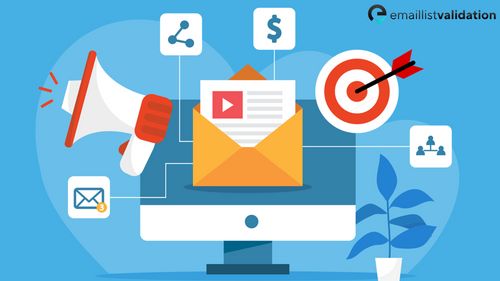As the world becomes more digital, email has become an essential tool for communication. Whether it's for personal or business use, email has become a primary means of communication. However, with the rise of spam and phishing emails, it's important to ensure that the email addresses we use are valid and legitimate. This is where email validation comes in.
Email validation is the process of verifying the accuracy and validity of an email address. It's a crucial step in ensuring that your emails are delivered to the intended recipient and that you're not wasting your time sending emails to invalid or non-existent email addresses. In this article, we'll explore the importance of email validation and how it can benefit you.
Why is Email Validation Important?
Email validation is important for several reasons. Firstly, it helps to reduce the number of bounced emails. A bounced email is an email that is returned to the sender because it was undeliverable. This can happen for several reasons, such as an invalid email address or a full inbox. When you send an email to an invalid email address, it will bounce back to you, wasting your time and effort. By validating your email addresses, you can reduce the number of bounced emails and ensure that your emails are delivered to the intended recipient.
Secondly, email validation helps to reduce the risk of spam and phishing emails. Spam emails are unsolicited emails that are sent to a large number of recipients. They can be annoying and time-consuming to deal with. Phishing emails, on the other hand, are emails that are designed to trick you into giving away your personal information, such as your login credentials or credit card details. By validating your email addresses, you can reduce the risk of receiving spam and phishing emails.
Finally, email validation helps to improve your email deliverability. Email deliverability refers to the ability of your emails to reach the recipient's inbox. When you send an email to an invalid email address, it can harm your email deliverability. This is because email providers, such as Gmail and Yahoo, use algorithms to determine whether an email is spam or not. If you send emails to invalid email addresses, it can trigger these algorithms and harm your email deliverability.
How Does Email Validation Work?
Email validation works by checking the syntax and domain of an email address. The syntax refers to the structure of the email address, such as whether it contains the "@" symbol and a valid domain name. The domain refers to the part of the email address after the "@" symbol, such as "gmail.com" or "yahoo.com".
There are several tools available online that can help you validate your email addresses. These tools work by checking the syntax and domain of the email address and determining whether it's valid or not. Some of the most popular email validation tools include Email Checker, Verify Email Address, and Verifalia.
Email Checker is a free online tool that allows you to check the validity of an email address. Simply enter the email address into the tool, and it will check the syntax and domain of the email address. If the email address is valid, it will return a green checkmark. If the email address is invalid, it will return a red X.
Verify Email Address is another free online tool that allows you to verify the accuracy of an email address. Simply enter the email address into the tool, and it will check the syntax and domain of the email address. If the email address is valid, it will return a message saying that the email address is valid. If the email address is invalid, it will return a message saying that the email address is invalid.
Verifalia is a paid email validation service that offers more advanced features than the free tools. It allows you to validate email addresses in bulk, which is useful if you have a large number of email addresses to validate. It also offers more detailed reports on the validity of the email addresses, including whether the email address is a catch-all address or a disposable email address.
Frequently Asked Questions
Q: What is a catch-all email address?
A: A catch-all email address is an email address that is designed to receive all emails sent to a particular domain, regardless of whether the email address is valid or not. For example, if the catch-all email address is "[email protected]", any email sent to "[email protected]" or "[email protected]" will be received by the catch-all email address.
Q: What is a disposable email address?
A: A disposable email address is a temporary email address that is created for a specific purpose, such as signing up for a website or service. They are often used to avoid spam and unwanted emails.
Q: Can email validation prevent all spam and phishing emails?
A: No, email validation cannot prevent all spam and phishing emails. However, it can help to reduce the risk of receiving these types of emails by ensuring that your email addresses are valid and legitimate.
Q: Is email validation necessary for personal email accounts?
A: Yes, email validation is necessary for personal email accounts as well as business email accounts. It can help to reduce the number of bounced emails and improve your email deliverability.
Conclusion
Email validation is an important step in ensuring that your emails are delivered to the intended recipient and that you're not wasting your time sending emails to invalid or non-existent email addresses. By using email validation tools, you can reduce the number of bounced emails, reduce the risk of spam and phishing emails, and improve your email deliverability. Whether you're using email for personal or business use, email validation is a crucial step in ensuring that your emails are effective and efficient.



